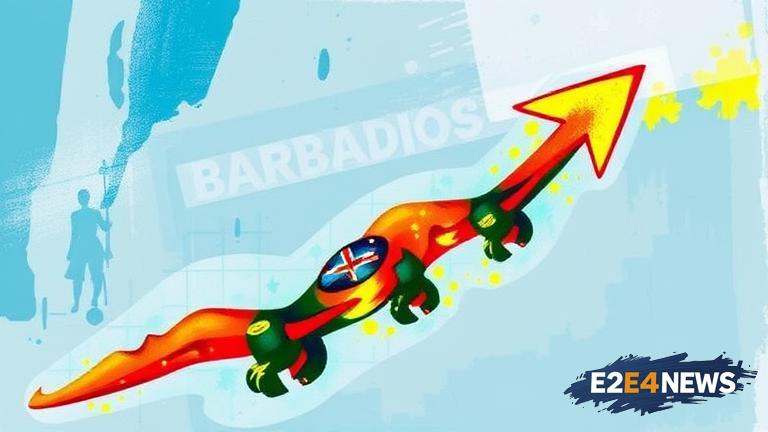The New National Party (NNP) in Barbados has recently expressed concerns that the country’s economic growth may be artificially inflated. According to the NNP, the current administration’s claims of economic success may be misleading. The party argues that the growth is not sustainable and is largely driven by external factors rather than any meaningful internal economic development. This has sparked a heated debate about the true state of Barbados’ economy. The NNP claims that the government is relying too heavily on tourism and foreign investment, which can be volatile and unpredictable. They also argue that the country’s manufacturing sector is underdeveloped and that the government has failed to implement policies that would encourage entrepreneurship and job creation. Furthermore, the NNP points out that the country’s debt-to-GDP ratio is still relatively high, which could pose a significant risk to the economy in the event of an external shock. The party is calling for a more nuanced approach to economic development, one that prioritizes diversification and sustainable growth. They believe that the government should focus on developing the country’s human capital, improving the business environment, and investing in infrastructure. The NNP also suggests that the government should be more transparent about the country’s economic data, allowing for a more accurate assessment of the economy’s performance. In response to the NNP’s claims, the government has defended its economic record, pointing to the country’s improved credit rating and the growth in foreign investment. However, the NNP remains skeptical, arguing that these achievements are not necessarily indicative of a strong and sustainable economy. The debate over Barbados’ economic growth has significant implications for the country’s future. If the NNP’s concerns are valid, it could mean that the country is not as economically resilient as it seems. On the other hand, if the government’s claims are correct, it could suggest that the country is on the right path towards sustainable economic development. The issue is likely to be a major point of contention in the upcoming election, with the NNP seeking to capitalize on the government’s perceived economic weaknesses. As the debate continues, it is clear that the people of Barbados will be watching closely to see how the situation unfolds. The country’s economic future is at stake, and the outcome of this debate could have far-reaching consequences. In the meantime, the NNP will continue to push for a more transparent and sustainable approach to economic development, while the government will seek to defend its record and convince the public that its policies are working. The situation is complex, with both sides presenting valid arguments. Ultimately, the truth about Barbados’ economic growth will depend on a careful analysis of the data and a nuanced understanding of the country’s economic context. As the country moves forward, it is essential that policymakers prioritize sustainable and inclusive economic growth, ensuring that the benefits of development are shared by all. The NNP’s charges of artificial economic growth have sparked an important conversation about the country’s economic future, and it is crucial that this debate continues in a constructive and informed manner. The people of Barbados deserve a clear and accurate understanding of the country’s economic situation, and it is the responsibility of policymakers to provide this. By examining the data and engaging in open and honest dialogue, Barbados can work towards a more sustainable and prosperous economic future. The country’s economic growth is a critical issue that requires careful attention and consideration. As the debate over artificial economic growth continues, it is essential that all stakeholders remain informed and engaged. The future of Barbados’ economy depends on it.
